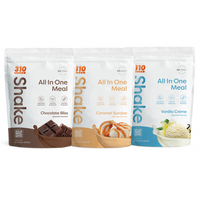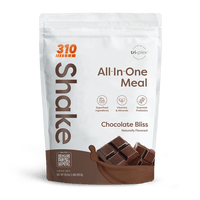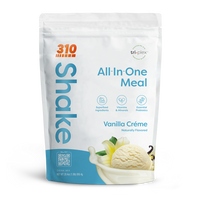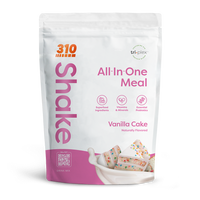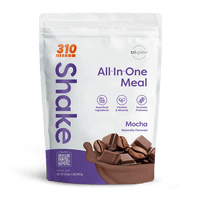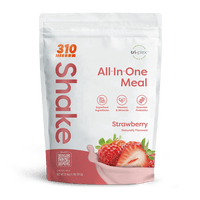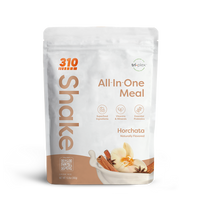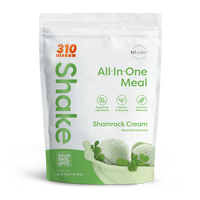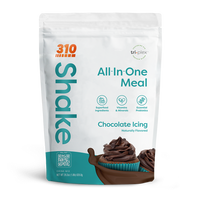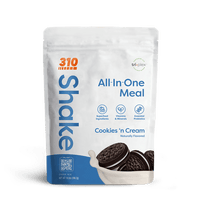Are you looking to shed a few pounds, but find that work commitments, family responsibilities, and the myriad of other time-consuming tasks keep getting in the way of prioritizing weight loss? Well, this article is for you! Fortunately, there are numerous strategies that can be seamlessly integrated into your hectic schedule that will not only improve your physical health, but also increase your overall well-being and kick-start your energy level.
In this guide, we’ll walk you through 21 of the best weight-loss methods to help you do just that! From time-efficient exercises to smart fitness hacks, you’ll learn new ways to fuel your weight loss journey without sacrificing your productivity or time. Whether you're a busy professional, a multi-tasking parent, or simply someone with a full plate, these tips are designed to help you make the most of your time, allowing you to effectively achieve and maintain your weight loss goals. But first, let’s look at some of the benefits of weight loss!
Why Losing Weight Is Important?
Maintaining a healthy weight allows your to enjoy a more active and fulfilling lifestyle, which helps promote longevity and vitality. Losing weight is also important because it can significantly improve your health and reduce your risk of chronic diseases such as heart disease, diabetes, and hypertension. It can also enhance mobility, lead to better sleep, and improve your overall quality of life. Let’s take a closer look at some of these weight-loss benefits:
Reduces the Risk of Chronic Diseases: Excess weight, particularly around the midsection, is linked to an increased risk of several chronic conditions, including heart disease, type 2 diabetes, high blood pressure, and certain cancers. [1]
Improves Metabolic Health: Weight loss can lead to improved insulin sensitivity, lower blood sugar levels, and better lipid profiles, reducing the risk of metabolic syndrome and type 2 diabetes.
Enhances Mobility and Pain Reduction: Carrying less weight can improve overall mobility by easing the burden on bones and joints, which can potentially reduce pain and symptoms associated with conditions like osteoarthritis.
Boosts Mental Health: Weight loss is often associated with improved self-esteem, reduced symptoms of depression, and a more positive body image. [2]
Improves Sleep Quality: Excess weight and/or obesity can contribute to sleep disorders such as sleep apnea. [3] Weight loss often improves sleep quality and can reduce the severity of sleep apnea.
Increases Energy Levels: Excess weight can make everyday tasks more challenging and tiring. Losing weight can lead to increased energy and vitality.
Enhances Respiratory Function: Excess weight can compress the lungs and make breathing more difficult. Weight loss can improve lung function and respiratory health.
Promotes Longevity: Studies have shown that maintaining a healthy weight can contribute to a longer life expectancy and improve overall quality of life.
21 Ways to Lose Weight With a Busy Schedule

While losing weight with a busy schedule can seem daunting, it’s entirely possible with the right strategies! This guide will help you seamlessly integrate weight loss efforts into your hectic life:
- Optimize Your Schedule for Morning Workouts
Starting your day with a workout can boost your metabolism and set a health-focused tone for the day. Morning exercise can lead to more consistent workouts because it’s less likely that unexpected obligations will disrupt your plans, compared to the afternoon or evening. It doesn't have to be a long session; even 20 minutes of high-intensity interval training (HIIT) or a brisk walk can have significant benefits. Morning exercisers often report feeling more energized and ready to tackle their day with a proactive mindset.
- Prepare Meals in Advance
Meal prepping is not only a time-saver, but a waistline-saver as well. By dedicating a few hours on the weekend to prepare meals, you can control your calorie intake and resist the temptation of fast food or over-snacking. Use this time to chop veggies, cook lean proteins, and portion out healthy fats. Having ready-to-go meals helps maintain a balanced diet and prevents the kind of decision fatigue that leads to poor food choices. This strategy also ensures you have nutritious food available, even when your schedule is back-to-back with meetings or errands.
- Hydrate Strategically
Drinking water is essential for metabolism and helps control appetite. Often, signals of thirst can be misinterpreted as hunger, leading to overeating. By drinking a glass of water before meals, you can partly fill your stomach and prevent overindulgence. What’s more, staying well-hydrated throughout the day can enhance physical performance, increase energy levels, and support all bodily functions. Keep a water bottle at your desk, in your car, or in your bag and set reminders to drink if necessary.
- Integrate Walking Meetings
For those who spend most of their day in meetings, walking meetings can be a game-changer. Not only do they provide moderate exercise, but they can also enhance creativity and camaraderie among colleagues. A walking meeting doesn't have to be long; a 20- to 30-minute discussion around the block is enough to get the blood flowing and can contribute to your daily step count. This strategy turns sedentary time into active time without requiring extra hours in your day.
- Incorporate High-Intensity Interval Training (HIIT)
HIIT is a highly efficient form of exercise that alternates short bursts of intense activity with periods of rest or lower-intensity exercise. A 20-minute HIIT session can burn more calories than a much longer walk or jog, making it ideal for busy individuals. HIIT sessions can be done anywhere, from your bedroom to a hotel room, without any equipment. The key is to push yourself during the intense intervals, going all out, and then allowing yourself a moment of recovery before the next burst.
- Focus on Sleep Quality
Sleep is often the first thing sacrificed on a busy schedule, but it shouldn’t be. Lack of sleep can disrupt hormone levels, increasing hunger and cravings while slowing down metabolism. Prioritizing 7-9 hours of quality sleep can improve decision-making, reduce stress, and aid in recovery from workouts. Create a relaxing bedtime routine, avoid screens an hour before bed, and try to go to sleep and wake up at the same time every day.
- Embrace Meal Replacement Shakes
For the busiest days, having a nutritious meal replacement shake can be a lifesaver. You might wanna try incorporating meal replacement shakes like the 310 Nutrition meal replacement shakes. They're packed with the right mix of protein, carbs, and healthy fats to keep you full and energized and may help you lose weight fast. This strategy is perfect for those who might otherwise skip meals, leading to overeating later. Always check the ingredient list to ensure the shake is low in sugar and high in fiber and protein.
- Snack Wisely
Snacking can either be a diet detriment or a weight-loss ally, depending on how it's approached. Smart snacking involves planning and portion control. Instead of reaching for chips or sweets, opt for snacks that are high in protein and fiber, like Greek yogurt or a small handful of nuts. These choices keep you full longer and provide sustained energy. Pre-portion snacks to avoid mindless eating, especially when you're busy.
- Use Smaller Plates
Using smaller plates can trick your brain into feeling satisfied with less food. It’s a simple psychological trick that can lead to reduced calorie intake. This strategy is especially helpful when you’re busy and may not be paying full attention to how much you’re eating. By starting with less, you can prevent overeating and still feel content.
- Implement Mindful Eating
Mindful eating is about being fully present during meals, savoring each bite, and listening to your body's hunger cues. It involves eating slowly, without distraction from televisions, computers, or phones. When you eat mindfully, you're more likely to notice when you're full and stop eating before you've overdone it. This practice can lead to better digestion and greater satisfaction with smaller portions.
- Limit Eating Out
Restaurant meals are often larger and higher in calories than home-cooked ones. By limiting the frequency of eating out, you have more control over your diet. When you do eat out, make smarter choices like opting for grilled instead of fried foods, asking for dressings on the side, and boxing up half of your meal for later.
- Batch Cooking
Similar to meal prepping, batch cooking is about making larger quantities of a few recipes that can be eaten throughout the week. This method saves time and reduces the mental load of daily cooking. On your least busy day, cook large portions of staples like brown rice, chicken breasts, and roasted vegetables. Store them in the fridge or freezer in single-serving containers for quick assembly during the week.
- Learn Quick Recipes
Create a go-to collection of quick and healthy recipes you can prepare in under 15 minutes! Whip up speedy stir-fries, toss together salads with canned fish, cook up fluffy omelets, or blend some delicious meal replacement shakes. These are nutritious, satisfying, and much faster than waiting on takeout. Keep these recipes handy to guarantee a wholesome meal on even the busiest of evenings.
- Manage Stress
Chronic stress can lead to weight gain, particularly around the midsection. Incorporate stress-reduction techniques into your routine, such as deep breathing exercises, yoga, or meditation. Even a few minutes per day can help manage stress levels, which in turn can help control cortisol levels and make it easier to lose weight.
- Limit Processed Foods
Processed foods are often high in unhealthy fats, sugars, and sodium, which can hinder weight loss. They’re also designed to be hyper-palatable, making it easy to overeat. Focus on whole, unprocessed foods like fruits, vegetables, lean proteins, and whole grains, which are more satiating and nutrient-dense.
- Track Your Progress
Keeping a journal of your food intake, exercise, and weight can keep you accountable and help you identify patterns that are conducive or detrimental to your goals. Apps can make tracking easier, and the act of logging can increase your awareness and control over your habits.
- Drink Green Tea
Green tea is known for its metabolism-boosting properties. It contains antioxidants called catechins that can help enhance fat burning, particularly during exercise. Substituting green tea for sugary drinks can also reduce calorie intake and provide a healthy energy boost.
- Be Active with Friends and Family
Incorporate physical movement into social activities with friends and family, like going for hikes, playing sports, or taking a dance class together. This not only provides a workout, but also makes exercise a fun and engaging part of your social life.
- Opt for Active Transport
Whenever possible, walk, bike, or take the stairs instead of elevators. These small changes can add up to a significant amount of extra calories burned throughout the day.
- Eat Protein at Every Meal
Protein is crucial for weight loss because it can reduce hunger and boost metabolism. Including a source of lean protein in every meal will help keep you full and ensure you maintain muscle mass, which is especially important if you’re reducing calories.
- Set a Cutoff Time for Eating
Establish a time in the evening after which you won’t eat anymore. This can help prevent late-night snacking, which is often mindless and unnecessary. Make sure this cutoff time is realistic and allows you to consume all the necessary nutrients throughout the day.
Some Things to Consider Before Losing Weight
When considering rapid weight loss, it's important for you to take into account several factors to ensure that the approach you choose is safe, effective, and sustainable. Here are some things to bear in mind:
Consult a Healthcare Professional: Before starting any weight-loss plan, particularly a fast one, you should speak with a healthcare provider, especially if you have any pre-existing health conditions. They can provide guidance on a healthy rate of weight loss and suggest modifications based on your medical history. In addition, you can join the 310 Nutrition community, which offers many benefits for those looking to improve their health, lose weight, or maintain a healthy lifestyle.
Understand Safe Weight Loss Rates: Generally, a safe rate of weight loss is 1-2 pounds per week. Rapid weight loss can sometimes be safe in certain circumstances under professional supervision, but it's important to understand that losing weight too quickly can lead to muscle loss, nutritional deficiencies, and gallstones.
Nutrition Is Key: Make sure that your diet is balanced and nutritious. Weight loss should not come at the expense of good nutrition. Even if the scale is your main focus, your body needs adequate vitamins, minerals, and other nutrients to function properly.
The Role of Muscle Mass: Be aware that losing weight too quickly often involves losing muscle as well as fat. This can decrease your metabolism, making it more difficult to keep weight off in the long run. Including strength training in your routine can help you maintain muscle mass.
The Importance of Hydration: Rapid weight loss can lead to dehydration, so it's essential to drink plenty of water. This is especially important if your weight-loss plan involves increased physical activity.
Mental Health Matters: Drastic dietary changes can have an impact on your mental and emotional well-being. Rapid weight loss can be stressful and difficult to sustain, potentially leading to mood swings, irritability, or burnout.
The Risks of Extreme Diets: Extreme diets that promise rapid weight loss can be very restrictive and often lack scientific backing. They can lead to yo-yo dieting, where you ultimately regain the weight after the diet ends, and can be harmful to your health.
Consider the Long Term: Think about how you will maintain your weight loss after the initial fast. The best diet plan is one that you can stick to for the long haul without feeling deprived or unhappy.
Lifestyle Changes: Lasting weight loss typically requires permanent changes in your eating habits, physical activity, and behavior. Weight loss that happens too fast may rely on changes that are unsustainable in the long term.
The Potential for Loose Skin: Rapid weight loss can result in loose skin, as it doesn't give your skin time to adjust to your body's new size. This is more pronounced in fast weight-loss scenarios.
Weight Regain: There's a high chance of regaining weight after rapid weight loss if the diet is too restrictive and if you haven't established long-term healthy habits.
Set Realistic Expectations: Have realistic goals and expectations. Fast weight loss can seem appealing, but it's important to set achievable and sustainable goals.
Watch Out for Red Flags: Be cautious of any weight-loss method that requires the use of supplements, laxatives, or any extreme measures. These can be dangerous and are often not necessary for weight loss.
How to Maintain Weight After Losing It

Maintaining weight after losing it is often considered more challenging than losing the weight in the first place. Here are some strategies to help you maintain weight loss over the long term:
Continue Healthy Eating Habits: Stick to the healthy eating patterns you developed during your weight loss journey. This includes eating plenty of fruits, vegetables, lean proteins, and whole grains while limiting processed foods and high-sugar snacks.
Stay Active: Regular physical activity is crucial for weight maintenance. Aim for at least 150 minutes of moderate aerobic activity or 75 minutes of vigorous activity each week, along with strength training twice a week.
Monitor Your Weight: Keep an eye on your weight by weighing yourself regularly. This can help you notice small weight gains before they become larger.
Be Consistent: Try to be consistent with your eating and activity level throughout the week and on weekends. This consistency can help you maintain your weight loss.
Plan for Setbacks: Recognize that setbacks will happen, and plan for them. Decide in advance what your strategy will be for getting back on track after a slip-up.
Stay Hydrated: Drinking enough water is important for overall health and can help you maintain a healthy weight by sometimes curbing unnecessary snacking.
Get Enough Sleep: Lack of sleep can lead to weight gain, so aim for 7-9 hours of quality sleep per night.
Manage Stress: High stress can lead to weight gain and can make maintaining a healthy weight more difficult. Find stress reduction techniques that work for you, such as meditation, yoga, deep breathing, or hobbies.
Eat Mindfully: Continue to eat mindfully, paying attention to hunger and fullness cues, to avoid overeating.
Limit Screen Time: Excessive time in front of screens is associated with less physical activity and increased snacking, so try to limit screen time.
Prepare Your Own Meals: When you cook your own meals, you have full control over what and how much you eat.
Stay Accountable: Whether it's through a weight-loss group, friends, family, or health professionals, find someone to be accountable to.
Set New Fitness Goals: Keep challenging yourself by setting new fitness goals to build muscle, increase endurance, or improve flexibility.
Don’t Skip Meals: Skipping meals can slow your metabolism and lead to overeating later in the day.
Continue to Track Food Intake: Use a food diary or an app to keep track of what you eat. This can help you stay aware of your eating habits and make it easier to adjust if you start to regain weight.
Be Flexible: Life changes, and so will your schedule and habits. Be ready to adapt your eating and exercise routines as necessary.
Stay Positive: Focus on the positive changes you’ve made and how good you feel since losing weight, rather than just the number on the scale.
FAQs
How many calories do you need to consume in order to lose weight?
The number of calories needed to lose weight can vary greatly depending on several factors, including age, sex, weight, height, and level of physical activity. Generally, a deficit of 500 to 1,000 calories per day is recommended to lose about 1 to 2 pounds per week, which is considered a safe and sustainable rate of weight loss. To determine your specific caloric needs and to ensure you’re still getting the necessary nutrients, it’s best to consult with a nutritionist or use a detailed calorie calculator that accounts for your personal factors.
What is the optimal amount of carbs for weight loss?
The optimal number of carbohydrates for weight loss can vary depending on individual metabolism, activity level, and dietary preferences. Typically, low-carb diets may restrict daily carbohydrate intake to anywhere from 50 to 150 grams to encourage the body to use fat as its primary fuel source. However, it's important to focus on the quality of carbs — opting for complex carbs like vegetables, whole grains, and legumes — rather than the quantity. Consulting with a healthcare provider or a dietitian can help you tailor a carb intake plan that's effective and sustainable for your specific weight loss goals.
Is it possible to lose weight without exercising?
Losing weight without exercising primarily involves a mindful approach to your diet. Focus on creating a calorie deficit by consuming fewer calories than your body burns daily. This can be achieved by choosing whole, unprocessed foods, which tend to be more filling and have fewer calories than processed foods. Portion control is also key; eating smaller, balanced meals throughout the day can prevent overeating. Additionally, lifestyle changes such as increasing daily activity through walking more or standing instead of sitting can also contribute to weight loss without structured exercise. It's always recommended that you consult with a healthcare professional before starting any weight-loss plan.
How much protein must be consumed in order to lose weight?
The amount of protein needed for weight loss can vary, but a common recommendation is to consume approximately 0.6 to 0.75 grams of protein per pound of body weight (1.2 to 1.6 grams per kilogram) daily. A higher protein intake can support muscle maintenance during weight loss, increase feelings of fullness, and slightly boost metabolism. It's important to distribute protein intake throughout the day and to choose high-quality sources of protein, such as lean meats, fish, eggs, dairy products, legumes, and nuts. Consulting with a dietitian can provide a personalized protein plan based on your individual health needs and goals.
How much water should I drink daily to lose weight?
Drinking adequate water can be a helpful component of a weight loss strategy. While individual needs can vary, a common guideline is to aim for 8-10 cups (about 2-2.5 liters) of water per day. However, if you're actively trying to lose weight, increasing your water intake can help you feel full and may reduce your appetite. Some people find it beneficial to drink a glass of water before meals to promote satiety. Keep in mind that water needs can also increase with exercise, in hot climates, and with certain dietary conditions. It's best to listen to your body and drink when you're thirsty, and always adjust according to your personal hydration needs.
How many grams of sugar can I consume per day and still lose weight?
To support weight loss efforts, it's generally advised to minimize sugar intake, especially from added sugars. The World Health Organization recommends reducing added sugar to less than 10% of total energy intake, which for most people is about 50 grams per day, and suggests that a further reduction to below 5%, roughly 25 grams per day, would have additional health benefits. Cutting back on sugary beverages, snacks, and processed foods can drastically decrease sugar consumption, helping to reduce overall calorie intake and potentially lead to weight loss. Always consider the quality of your entire diet and aim for balanced nutrition to achieve the best results.
The Bottom Line
By planning meals ahead of time, choosing nutritious snacks, drinking enough water, and getting regular exercise, it’s possible to achieve the delicate balance of making your health a priority while still managing your daily obligations. Over time, you will create consistent lifestyle adjustments that can result in long-term weight loss and optimal health benefits. Another crucial element for successful weight loss that’s often overlooked is getting adequate sleep and controlling your stress levels. And, most importantly, remember to treat yourself with kindness at all times and recognize that growth is not linear; there will be good days and bad days along your journey. However, with the right attitude and a solid strategy, even the busiest schedule is no match for successful weight loss!
Reference
- Swinburn, B. A., Caterson, I., Seidell, J. C., & James, W. P. T. (2004). Diet, nutrition and the prevention of excess weight gain and obesity. Public Health Nutrition, 7(1a), 123-146.https://doi.org/10.1079/PHN2003585
- Felske, A. N., Williamson, T. M., Scurrey, S. R., Telfer, J. A., Campbell, T. S., & Rash, J. A. (2021). The influence of weight-related self-esteem and symptoms of depression on shape and weight concerns and weight-loss 12 months after bariatric surgery. Obesity Surgery, 31, 1062-1072.https://doi.org/10.1007/s11695-020-05097-9
- Akinnusi, M. E., Saliba, R., Porhomayon, J., & El-Solh, A. A. (2012). Sleep disorders in morbid obesity. European Journal of Internal Medicine, 23(3), 219-226.https://doi.org/10.1016/j.ejim.2011.10.016




